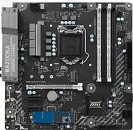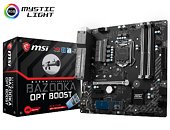Tuesday, April 25th 2017

MSI Bundles Optane Cache SSDs with Select Motherboards
In what could be the first of many such bundles by motherboard manufacturers, MSI is preparing special SKUs of its motherboards that include Intel Optane cache SSDs. The drives won't be free, but the bundle would be slightly cheaper compared to buying the board and the drives separately. These bundles will be demarkated as variants of existing motherboards, and will come with the drives pre-installed on the boards' M.2 slots. MSI announced two such SKUs for now, the B250M Bazooka Opt Boost, and the Z270 Tomahawk Opt Boost, which come with 16 GB Intel Optane memory pre-installed and configured.
The 16 GB Intel Optane memory offers burst speeds that are 14X those of regular hard drives. The latest Intel Rapid Storage Technology driver, when configured for Optane caching, juggles "hot" data (most frequently accessed data) in and out of the drive from your main storage (HDD or even SSD), thereby boosting performance. MSI did not reveal pricing of the two SKUs, but they are expected to be nominally cheaper than purchasing the boards and drives separately.
The 16 GB Intel Optane memory offers burst speeds that are 14X those of regular hard drives. The latest Intel Rapid Storage Technology driver, when configured for Optane caching, juggles "hot" data (most frequently accessed data) in and out of the drive from your main storage (HDD or even SSD), thereby boosting performance. MSI did not reveal pricing of the two SKUs, but they are expected to be nominally cheaper than purchasing the boards and drives separately.




9 Comments on MSI Bundles Optane Cache SSDs with Select Motherboards
So you can expect only the fast expected Windows Start. I would not sacrifice M.2 slots for so little. I'd rather buy 2 x Samsung 960 EVO and ties in RAID 0 and turn on the Rapid ...
Using the RAM disk software devices equally well speed up the responsiveness of windows. Just enough RAM is required to insert processes in ramdisk application .Yes when this technology will be on every disk in addition to ,... this will be really good. :)
You can estimate an upper limit yourself by multiplying your disk read rate and the time Windows needs to start. In my case (around 120 MB/s and 30s) this is under ~3.6 GB.
We might not like the price and some might not like the manufacturer, but this could be (IMO: is) the future of SSDs. And it will change how we use PCs.
For starters: it will make RAM-based Sleep Mode obsolete. :)